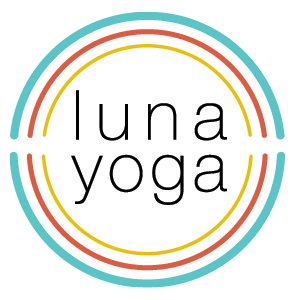Mental Wellness and the Pandemic
We’re experiencing so much change; this pandemic has forced us into a different lifestyle than what we most of us were used to for most of us, and brought along with it many internal insecurities while we were in isolation. This situation may have caused you to having have anxiety, feeling down and being afraid for others and for yourself. We have all been affected to a certain extent by this pandemic, not just locally but worldwide.
The last blog post I wrote for Luna Yoga was on our the brains and meditation. My intention was to follow-up with a blog post about meditation and mindfulness in the context of well-being. This seems like the opportune time to do just that.
Where we left off
Remember this picture from my last blog post “Your Brain on Meditation”?
https://news.wisc.edu/newsphotos/davidson08.html
This is one of the Dalai Lama’s closest interpreters, Matthieu Ricard, who has been referred to as the happiest man on earth.
When I read this I asked myself, “Why do long-term meditators look so happy and content with life? What does research show?” “Your Brain on Meditation” had pointed out was that meditation has been shown to have an effect on the brain, most notably the insula, an area associated with attention and concentration. What was I did not mentioned is one of the most talked about benefits of meditation and cultivating mindfulness, something that we all seek: emotional well-being.
Different paths can lead to the same road
Research has shown that meditators experience an improvement in mindfulness, rumination (when you keep going back to that one small thing that allegedly ruined your entire day), self-compassion , psychological flexibility, stress levels, and memory.
There are many kinds of meditations and mindfulness exercises that ultimately leads to these qualities that are tied to emotional well-being. While some practitioners might advocate one particular kind of meditation as “being more effective”, there is no research supporting the claim that one particular meditation or mindfulness exercise is better than another.
Overall, whatever you do should depend on whether you feel like you are getting the desired benefits from whatever kind of meditation you’ve chosen. If it feels right to you, for you, then you do you!
Mike Coates (publicdomainpictures.net)
Move, move, move!
There are different ways of being more present and it can be through exercise! In yoga of course we keep encouraging mindfulness through movement so it’s easier to imagine that doing yoga, a physical exercise, can enhance our well-being. If you’ve taken my classes you’ll know I love running, for a long time before yoga it was my way of “disconnecting” or taking a step back from my day whether it went well or meh! Interestingly, running has also been getting more attention as a meditation. You can check out Deepak Chopra’s page on this topic, or this the book “Running with the Mind of Meditation” by Sakyong Mipham.
Take-home message
The “ Ordre des Psychologues du Québec “ published a page dedicated to providing psychological advice to help us through the pandemic. They encourage people to do relaxation, mindfulness, and breathing exercises, meditation, and yoga. They also advise practicing self-compassion and empathy towards others; things that we often go back to during our yoga practice.
Join me
I’ll be leading my second “Yoga for Mental Health” class on June 20th 9.30am to 10.30am! Let’s get together, move through a fun and mindful flow, and then we’ll meditate!
Léa is a doctoral student in Mental Health Research at McGill University. She was introduced to yoga in Thailand during her undergraduate studies in order to improve her strength and flexibility as a runner. She then discovered the benefits of mindfulness through meditation and the practice of yoga. In 2016, after practicing yoga for 8 years, she completed the yoga teacher training at Luna Yoga. She enjoys teaching vinyasa yoga in a studio or community setting. She teaches people of all ages using the same approach; openness, a relaxed atmosphere, and mindfulness.



